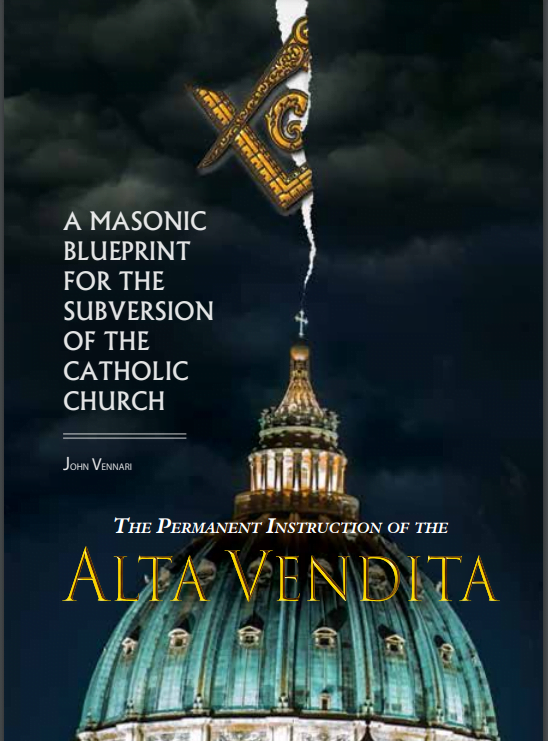Letter from an Agent of the Secret Societies in 1845:
“There are now several parties in Italy. The first is satisfied with everything. After it comes the one who wants to go further; who wants progressive but continuous reforms, not only in administration, but also in politics. The last of they are the Italian party , which pushes the first and the second, which accepts everything to go forward: it masks, disguises and hides its ultimate aim, which is Italian unity . In the midst of these parties, there is another division or subdivision; I intend to speak of the clergy, for whom Gioberti is what Mazzini isit is for the Italian party. Gioberti the priest speaks their language to the priests, and I will tell you that I come to know from all sides that, in the ranks of the secular and regular clergy, the doctrines of liberty, and the Pope at the head of this liberty and of Italian independence, are a thought that seduces many, to such an extent that they are convinced that Catholicism is an essentially democratic doctrine. This party increases every day more among the clergy; Gioberti’s new work is eagerly awaited; this work is for priests. The book or rather the five volumes of Gioberti are not yet published; Mazzini awaits them impatiently to talk about it in the last chapter of the work that is about to appear and will be entitled: The parties in Italy or the Italy with its princes , or Italy with the Pope “.
In a Brief, addressed to Crétineau-Joly, dated February 25, 1861, Pius IX consecrated, so to speak, the authenticity of the passages quoted above:
“Dear son, greetings and Apostolic blessing.
“You have acquired a particular right to our gratitude, when, two years ago, you had the idea of composing a work recently completed and reprinted, to show with documents this Roman Church always exposed to the envy and hatred of the wicked, and in the midst of the political revolutions of our century, always triumphant. And it is with joy that we received the specimens of which you have paid us homage, and we rightly thank you for this most affectionate attention. After all, the times that have followed, times, alas! so sad and cruel, so fatal to the See of Peter and to the Church, they cannot disturb Our soul, because we defend the cause of God, the cause for which our predecessors suffered prison and exile, thus leaving a beautiful example to imitate. Let us therefore implore the almighty Lord to strengthen us with his power and to hear the fervent prayers that the Church raises everywhere, to dispel this dreadful storm. We confirm Our particular affection for you with the Apostolic Blessing, a pledge of every heavenly grace that we bestow on you, dear son, and on the whole family in the affectionate outpouring of Our paternal heart.
“Given in Rome, at St. Peter’s, on the 25th day of February 1861, of Our Pontificate XIV year.
“Pius IX, PP.”.
The great work that the Alta Vendita had been commissioned to carry out since 1820 was not accomplished with the occupation of Rome by the Piedmontese; the continuation is entrusted to other hands.
Twenty years after the downfall of the Temporal Power, Lemmi, the Grand Master of Freemasonry in Italy, addressed the following document to all the lodges of the Peninsula:
“From T . . ., October 10, 1890.
“To the Fri. . . F. . . of the Italian Lodges,
“The edifice that the FF … are erecting in the world cannot be regarded as having reached a good point until the FF… of Italy have given humanity the ruins of the destruction of the great enemy .
“The enterprise is progressing rapidly in Italy … We have applied the chisel to the last refuge of superstition, and the loyalty of F. . . 33. . . who is at the head of political power (Crispi), is a guarantee that the Vatican will fall under our life-giving hammer … The last efforts will meet greater obstacles on the part of the chief priest and his vile slaves … The G. . . O. . . invokes the genius of humanity so that all let the F … work with all their strength to scatter the stones of the Vatican, to build with them the temple of the emancipated nation.
“The G. . . O. . . of the Tiber Valley”.

